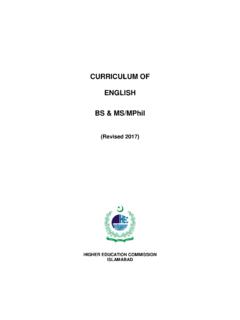Transcription of Guidelines on Interpreting and Translation - Legal Aid NSW
1 Guidelines on Interpreting and Translation Item Description Policy description A set of guiding principles for engaging and working with interpreters and translators Division Equity and Diversity, Planning and Business Reporting, Strategic Policy & Planning Division Executive Director Annmarie Lumsden, Strategic Policy & Planning Division Contact Pam King, Manager Planning and Business Reporting, 02 9219 5065 Date approved 22 September 2014 Next review By 22 September 2017 Key words Interpreting , Translation , culturally and linguistically diverse (CALD) Revision History Date Version Reviewed by Changes made Date of first revision No revisions made to date. Date of second revision [etc] Date closed Printed copies of this document may not be up to date. Ensure you have the latest version before using this document.
2 Table of Contents 1. Interpreting .. 4 Our obligations .. 4 What is an interpreter .. 4 Arranging an interpreter .. 5 Working with interpreters .. 8 External agencies .. 10 2. Translation .. 12 What is Translation .. 12 Planning for Translation .. 13 Preparing for Translation .. 14 Arranging translations .. 14 3. Equity impact .. 15 4. Further information .. 16 2 Guidelines on Interpreting and Translation Last updated 22 September 2014 Policy overview Scope and purpose of these Guidelines These Guidelines are intended to provide a set of simple guiding principles for staff engaging and working with interpreters and translators. Applicability and target groups These Guidelines apply to every person employed by Legal Aid NSW, including permanent and temporary staff, contractors and consultants.
3 Managers should ensure that all relevant staff members know about these Guidelines and how to apply them. If anything in these Guidelines is unclear, or you are unsure about how to apply them, contact the person listed on the cover page of these Guidelines . Legislative environment These Guidelines take into account Legal Aid NSW's obligations under: The Principles of Multiculturalism in section 3 of the Community Relations Commission and Principles of Multiculturalism Act 2000 (NSW) International conventions on human rights to which Australia is a signatory State and Commonwealth anti-discrimination legislation Annual reporting requirements under the Community Relations Commission's Multicultural Policies and Services Program Legal Aid NSW Client Service Charter undertakings to provide clients who do not speak english with a qualified interpreter and to be culturally sensitive to their needs.
4 Monitoring, evaluation and review This document is to be reviewed every three years. The last review was on 30 June 2014. See cover page of this policy for more information about changes to the policy since its release. Further information, additional resources & associated documents These Guidelines should be read in conjunction with the Legal Aid NSW Guidelines on communicating with people who are deaf, hard of hearing and speech impaired and the Complaints Handling Policy. Some content of these Guidelines was adapted from the Victorian Government Guidelines on Policy and Procedures: Using Interpreting Services and Effective Translations. 3 Guidelines on Interpreting and Translation Last updated 22 September 2014 1. Interpreting Our obligations New South Wales is one of the most culturally diverse places in the world with more than 200 languages and dialects spoken in this state.
5 Over 25% of its population are overseas born and more than 22% speak a language other than english at home. Legal Aid NSW provides accredited interpreters to fulfil its responsibilities to provide client services to culturally and linguistically diverse (CALD) communities. All staff who provide services directly to clients with language needs are responsible for the implementation of these Guidelines . National interpreter symbol The national interpreter symbol is a nationally recognised symbol to indicate to people with limited english that they can ask for language assistance. All Legal Aid NSW offices are encouraged to display the symbol in client reception areas. Sign language interpreters These Guidelines cover the use of spoken language Interpreting services only. For information regarding sign language interpreters, refer to the Guidelines on communicating with people who are deaf, hard of hearing and speech impaired.
6 What is an interpreter? An interpreter is a qualified professional who enables communication between people who speak different languages. Interpreters convert messages accurately and objectively from one language into another. Interpreters can help facilitate communication for people from diverse backgrounds during meetings, training, interviews, mediation, court hearings, community Legal education or other group situations. Accredited interpreters Knowing a foreign language does not qualify a person to act as an interpreter. In Australia, interpreters are accredited by the National Accreditation Authority for Translators and Interpreters (NAATI). They are required, as a condition of their ongoing accreditation, to act in accordance with the Australian Institute of Interpreters and Translators (AUSIT) Code of Ethics which includes competence, confidentiality, impartiality, avoiding advocacy or conflicts of interest, and remaining faithful to the meaning of source messages at all times.
7 There are three categories of NAATI interpreters for spoken languages: Professional interpreters (formerly known as Level 3) are competent for professional Interpreting across a wide range of semi-specialised situations. All Legal Interpreting (including police interviews) must be carried out by professional interpreters. Paraprofessional interpreters (formerly known as Level 2) are competent for Interpreting general conversations and non-specialist dialogues. Recognised interpreters are interpreters with Interpreting experience in languages that NAATI has no testing for often the languages of emerging communities. 4 Guidelines on Interpreting and Translation Last updated 22 September 2014 NAATI accreditation can be obtained in many ways including passing a NAATI accreditation test and completing a NAATI approved TAFE/university course.
8 Some interpreters have obtained their accreditation through testing only, without any formal Interpreting training. Preference should be given to interpreters who are accredited and best qualified ( having undertaken Legal Interpreting training). Community Language Allowance Scheme (CLAS) recipients The Community Language Allowance Scheme (CLAS) is available to NSW government employees by passing an examination administered by the Community Relations Commission or by having accreditation from NAATI at the professional interpreter level. Some examples of how CLAS recipients in Legal Aid NSW may use their skills include answering front-desk inquiries, providing directions to another office or assisting in making client appointments for a further visit. For matters which will take a longer time or require an in-depth or formal interview, NAATI accredited interpreters should be engaged in lieu of CLAS recipients.
9 This is because CLAS recipients may not have NAATI accreditation. To find a CLAS recipient, check the Resources side bar on the Equity & Diversity page or search "CLAS" in the staff directory on the intranet. Family and friends Family and friends can play an important role in providing support to a client. However, they may not have the required language competence and Interpreting skills required to interpret accurately. In addition, they will not be bound by any standards of conduct as accredited interpreters and will be unable to remain impartial. For these reasons, family members or friends, especially children, should not be asked to interpret in situations involving critical information and decision making, as it will be difficult for them to remain impartial, maintain confidentiality and accurately interpret all that is said.
10 Arranging an interpreter Assessing the need for an interpreter Wherever possible the need for an interpreter should be determined prior to an appointment. Engaging an interpreter is recommended if: Case study Q: Miriam is from Afghanistan and speaks a limited amount of english . She made an appointment to see Kelly, a family lawyer, regarding divorce and custody of her 11 year old daughter Mina. Miriam brought Mina to the appointment and insisted on having Mina as her interpreter. She explained that the Afghan community is small and she didn t want people to talk behind her back. Even though Kelly could see that Mina was fluent in both english and Dari, she explained to Miriam about an interpreter s duty of confidentiality and engaged the service of a telephone interpreter to assist with communication.





